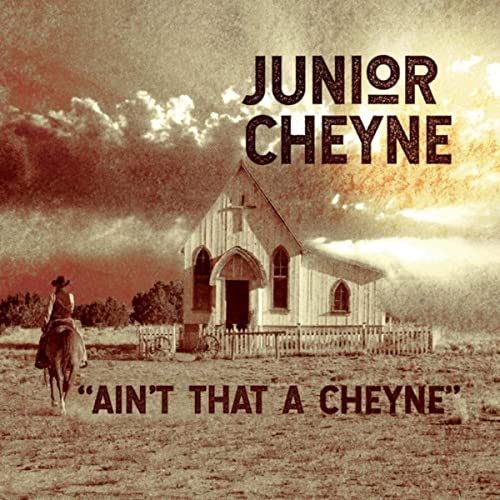Reader, I have a confession to make: I have been growing tired of Americana. I’m not necessarily tired of American iconography, or even of the musical genre that traffics in that iconography; America, whatever else you’d care to say about it, is a goldmine for a creative songwriter. I’m talking about the bland, mannered Americana music that I’ve been finding on practically every Spotify playlist and YouTube exploration.
It’s usually called Americana by default, because it’s not distinctive enough to be country and not rootsy enough to be folk. There will be a tastefully strummed acoustic guitar, an aimless slide guitar riff here and there, maybe some attempts at Fleet Foxes-esque harmonies, and no interesting point of view to call its own. It’s never bad, exactly, because it doesn’t allow itself to be bad. It’s a musical pack of Graham crackers.
Thank God for John Wages and Junior Cheyne, because their song, “Close Enough for Jazz”, is exactly the kind of antidote I needed. It’s unmistakably Americana, but it has its own sonic identity, its own point of view, and an effortlessly good-natured atmosphere that makes it impossible to dislike. Musically and lyrically, it’s a breath of fresh air.
“Americana” really is the right genre for “Close Enough for Jazz”, because it takes inspiration from all forms of American music. There’s a country backbone, yes, but there’s also a jazzy lilt to it, and there are shades of Tin Pan Alley pop to the disarmingly sweet melodies. At the center of that Venn diagram lies the humble vibraphone, and it chimes and shimmers in the background while providing crucial color to the song’s arrangement.
Some might consider these genres old-fashioned, but “Close Enough for Jazz” never feels like a self-conscious throwback because it’s presented with such plainspoken honesty. Sure, you can hear a little smile on the corner of the singer’s lips as he hits the chorus with lounge-singer verve, but it doesn’t feel like a pose or an affectation so much as a little inside joke between him and the listener. It’s fun, and it’s fun because it sounds like Wages and Cheyne had fun making it.
The lyrics are just as likable. Our singer talks about the relationship between him and his significant other, and how they might seem a little strange and unusual compared to everyone else. He’s not bothered by it; after all, you “can’t measure love with a ruler or a weight”, and they have a better relationship than any of the snobby couples rolling their eyes. “We’re the crazy couple they all wanna be,” the singer croons, and you want to be them, too.
Wages and Cheyne position themselves in opposition to “the Nashville record industry and their cohorts in corporate radio”, but they don’t really need to. “Close Enough for Jazz” isn’t really a country song; alt-country, maybe, in a Lambchop kind of way, but then again Lambchop aren’t really country, either. It’s Americana, certainly, but at its heart it’s something rare and wonderful: a great pop song.







